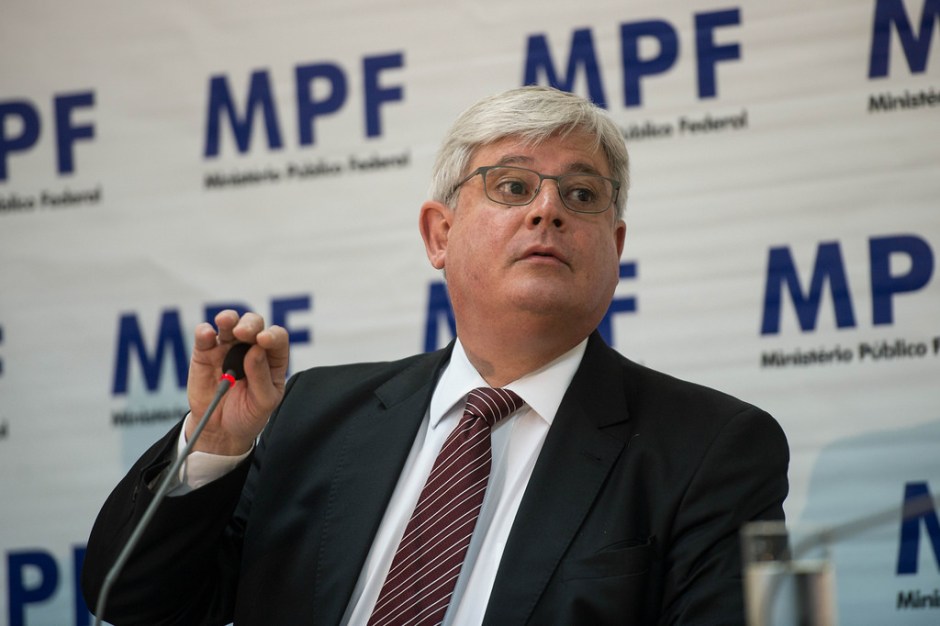
On Tuesday August 8, Brazilian President Michel Temer asked the Supreme Court (STF) to remove the country’s Attorney General, Rodrigo Janot from power. The decision to remove Janot comes after an August 2 congressional vote to drop passive corruption charges filed by Janot against Temer in June. As Attorney General, Janot established a precedent of convicting high-level politicians for corruption throughout Operação Lava Jato, a set of investigations aimed to fight organized crime within Brazilian politics. Since Operação Lava Jato began in 2014, the investigations have uncovered sweeping political corruption across both political parties and neighboring countries in the Latin American region. However, Temer sees Janot’s charges against him to be attacks founded on personal motivation. Temer claims that Janot is acting “beyond his constitutional limits”, as the attorney general pursues obstruction of justice charges against Temer. Fearing that pending charges will unearth more concrete evidence of corruption, Temer moves to dismiss Janot from the investigations and ensure himself immunity. Riding a wave of confidence following the congressional vote, Temer hopes to solidify his political power by launching a counterattack against the nation’s top prosecutor to destroy his reputation.
Temer is claiming that Janot is “no longer fit to lead” the Federal Prosecution Office (Ministerio Publico Federal, MPF), but has not explained why the top prosecutor is not fulfilling his position. However, many MPF counselors stand behind Janot and the work he has done to combat political corruption. On August 8 during a public display of honor, MPF counselors voiced their approval of Janot. Counselor Antônio Duarte remarked that Janot’s work “deserves respect.” Furthermore, Janot played a pivotal role in transforming Brazil’s judicial system to fight the white collar crime of high-ranking politicians. Operação Lava Jato exposed years of pervasive Brazilian political corruption including the failure of previous prosecutors to penalize politicians. Under Janot, the MPF has established a new era of accountability for Brazilian judicial law that is not only initiating a national movement, but a global crusade against corruption. Brazil is now a leader in the fight against transnational political corruption thanks to Janot’s efforts to collaborate with other countries on international investigations.
While Temer claims the investigations against him are motivated by a personal vendetta, Janot has not shown his actions resemble any semblance of a personal attack. Janot, who was appointed to Attorney General in 2013 by the former president Dilma Rousseff, has remained politically neutral throughout Operação Lava Jato. Instead, he has focused on breaking down the political immunity of influential politicians, including Rousseff and her predecessor Luiz Inácio Lula da Silva. In May, Janot went to the Supreme Court to initiate investigations into elite politicians from the leading political parties — Partido do Movimento Democrático Brasileiro (PMDB), Partido dos Trabalhadores (PT), and Partido da Social Democracia Brasileira (PSDB). Even though the charges instigated public outrage, with protests supporting the former presidents, Janot remained focused on bringing justice for the politicans’ actions, proving to be politically neutral and objective throughout the investigations.
Through Operação Lava Jato, Temer, a third of his cabinet, four former presidents, and dozens of lawmakers are currently under investigation or have been charged for corruption. Already over 100 people have been convicted. Temer asserts there is no concrete evidence of his corruption and claims Janot has no grounds to pursue obstruction of justice charges against him. However, plea bargains exposed Temer’s acceptance of bribes from a meat-packing corporation, JBS, and recorded conversations of Temer discussing bribes with the JBS executive Joesley Batista exist. As Janot threatens to bring forward additional charges against Temer in the next month before his term as Attorney General ends on September 17, Temer is scrambling to impede further investigations that could expose more solidified evidence of his corruption.
Temer’s call for Janot’s removal from his post will be decided by Supreme Court Justice Luiz Edson Fachin, the Justice in charge of overseeing all the corruption investigations. Legal experts say that it is unlikely Edson Fachin will remove Janot, but if he decides to fulfill Temer’s request, it would symbolize a significant step back in the judicial revolution Janot has spearheaded. Temer considers the recent congressional vote to drop his corruption charges as evidence that he has both Congressional and additional political support; however, his support is not as reliable as he believes. Congress stands behind Temer on the belief that he will push economic reforms needed to put Brazil’s economy back on track. Should his policies fail to bring economic relief, Temer is likely to see his support slip away. Additionally, Congress is currently focusing on political reform to restructure national elections, instead of on Temer’s pension reform bill, showing the President that he does not have full reign over the legislative body. If further charges emerge, Temer’s support will again be tested in Congress, who could choose to remove their support in the second round of voting. With weak political power and an approval rating around 5 percent, Temer is doing everything he can to prevent another congressional vote.
Through Operação Lava Jato and Janot’s judicial leadership, Brazil has evolved into an internationally-recognized leader in the fight against organized political corruption. Brazil currently suffers from political and economic crises that can only be resolved once the corruption is thoroughly removed from politics. Therefore, Brazil’s judicial branch must remain autonomous and resilient against the President. In order to preserve the progress made over the past three years and ensure future prosperity for Brazil, it is essential that Janot remains in power through the end of his term in September.
Image via flickr
